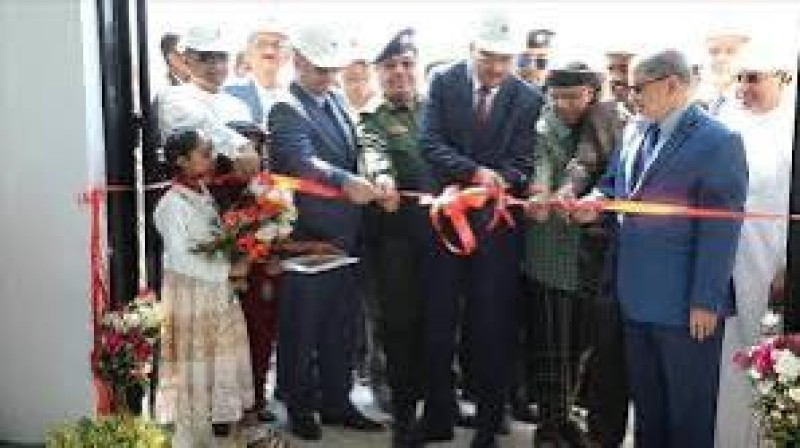Yemen: UN Resident and Humanitarian Coordinator welcomes progress on FSO Safer proposal


The UN Resident and Humanitarian Coordinator for Yemen, David Gressly, held constructive meetings last week on the UN-coordinated proposal to mitigate the threat posed by the aging floating storage and offloading unit, FSO Safer, moored off the coast of Al Hodeidah.
During meetings with the Government of Yemen in Aden, Mr. Gressly discussed the proposal with the Prime Minister, the Minister of Transport, and the Safer Emergency Committee. “In our very positive discussions, the Government officials confirmed that they support the UN-coordinated proposal to shift the million barrels of oil onboard the vessel to another ship,” said Mr. Gressly, “They want to see the threat mitigated as soon as possible.”
“I also held very constructive discussions on 29 January with senior representatives of the Sana’a authorities on the FSO Safer,” said Mr. Gressly. “They stressed their concern over the environmental and humanitarian risk posed by the tanker and their wish to see rapid action to resolve the problem. They also agreed in principle on how to move forward with the UN-coordinated proposal.
There is strong commitment from the leadership to see this project implemented.”
“I am also engaging in a broader conversation with interested member states whose support will be crucial to realize the project. The risk of imminent catastrophe is very real. We need to translate the good will being shown by all interlocuters into action as soon as possible.”
Background for editors
In September, the United Nations’ senior management instructed Mr. Gressly to provide UN system-wide leadership on the FSO Safer and coordinate all efforts to mitigate the threat. He has been engaging in discussions with a wide range of stakeholders on the new initiative to resolve the threat while supporting work to strengthen contingency plans in the event of a catastrophic oil leak.
Constructed in 1976 as an oil tanker and converted a decade later to be a floating storage facility for oil, the FSO Safer is moored about 4.8 nautical miles off the coast of Al Hodeidah Governorate. The 376-metre-long vessel contains more than one million barrels of light crude oil – four times the amount spilled by the Exxon Valdez. With no maintenance operations undertaken on the Safer since 2015 due to the conflict, its structural integrity has significantly deteriorated and the vessel is at imminent risk of spilling oil due to leakages or an explosion.
A significant spill would quickly surpass national capacity and resources to mount an effective spill response. The result would be catastrophic, devastating the Yemen coast, destroying livelihoods and forcing a closure of the ports of Al Hodeidah and As Salif - which are essential for the importation of commercial imports and life-saving humanitarian assistance. Depending on the season and prevailing wind and currents, the environmental impact would also affect Saudi Arabia, Eritrea, Djibouti and Somalia, and could disrupt vital shipping through the Bab al-Mandab Strait and the Red Sea.

Aden — Ports under the authority of Yemen’s internationally recognized government have received more than two million metric tons of fu…

Mukalla — Local authorities in Hadramout have announced the inauguration of Yemen’s first solar-powered cement station, a landmark proj…

AbuDhabi -- The United Arab Emirates has pledged $1 billion to bolster Yemen’s electricity sector, marking one of the largest development com…